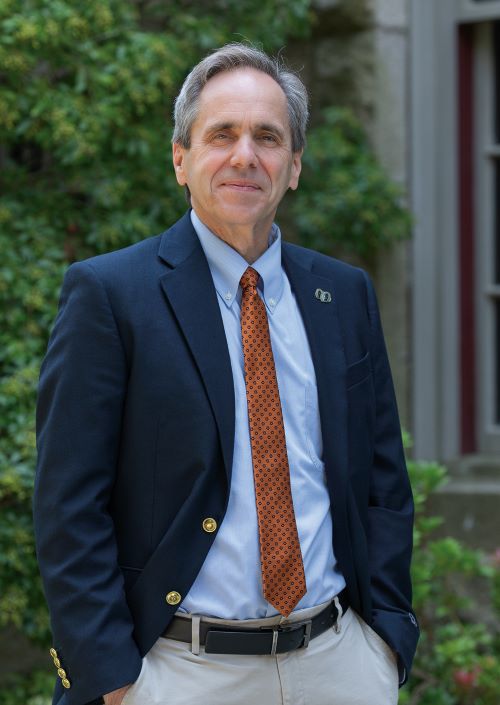The University of Rhode Island’s (URI) College of Health Sciences has new leadership this year. Since his arrival on campus in January, Dean Patrick Vivier says he’s been struck by the vision and energy of the state’s land-grant research institution.
“The college is doing lots of things that are excellent, and has the potential to get even further,” Vivier says. “Every day I walk to my office I think ‘Oh my goodness, this is an amazing place to be.’”

So far, Vivier’s has been impressed by URI’s combination of service in the community and cutting-edge applied and fundamental research, plus the University’s focus on interdisciplinary work and inter-college collaboration.
A pediatrician by training, Vivier has spent much of his career focused on kids, their families, and related health disparities both clinically and through research.
He comes to URI from Tufts University, and prior to that, Brown University. here, he helped develop Brown’s School of Public Health and was a founding director of the university’s Hassenfeld Child Health Innovation Institute. URI’s College of Health Sciences houses eight undergraduate majors, eight graduate programs, three interdepartmental minors, and four certificate programs including a prevention and family sciences graduate certificate launched in April.
“We are providing an excellent educational experience across a broad range of degrees,” Vivier says. “There is a long tradition here that the faculty value education, value their students, and are invested in them.”
One of the ways URI stands out to Vivier is its opportunities for students to learn through practice. Not only are students heavily embedded in faculty research, but the college also offers two working preschools and clinics for audiology, speech therapy, physical therapy, psychology, and human development.
“I think teaching, research, and clinical or community practice inform each other,” he says. “The best way to learn is to do.”
Another advantage he emphasizes is the college’s faculty, whose research and practice set up a culture of activity and growth.
“We have faculty who are engaged in practice and know what’s going on out there, and faculty who are engaged in research who are trying to figure out those next solutions for years to come,” he says.
On the horizon for the college, according to Vivier, are new graduate degrees in mental and behavioral health counseling and in public health, both launching in 2025.
Vivier hopes to build close relationships between this new public health department and the Rhode Island Department of Health and public health community groups. He also hopes to build interdisciplinary collaboration at the University into the department and is in talks with the deans of other colleges for synergistic opportunities like health communications.
Any health problem now that we’re dealing with in the world is not going to be solved by one specialty or discipline. It really needs to be interdisciplinary. So, to be the dean of a college that has breadth, and to be starting with new deans in Pharmacy and Nursing, where we can be figuring out how to do cross-college activity, is really exciting.Patrick Vivier
Vivier says the College’s current offerings and initiatives provide a strong base on which to build. “In particular, we have a lot of junior faculty doing really exciting research, and to see how that could explode in the next five to 10 years, and being part of trying to make that happen, is really exciting,” he says.
